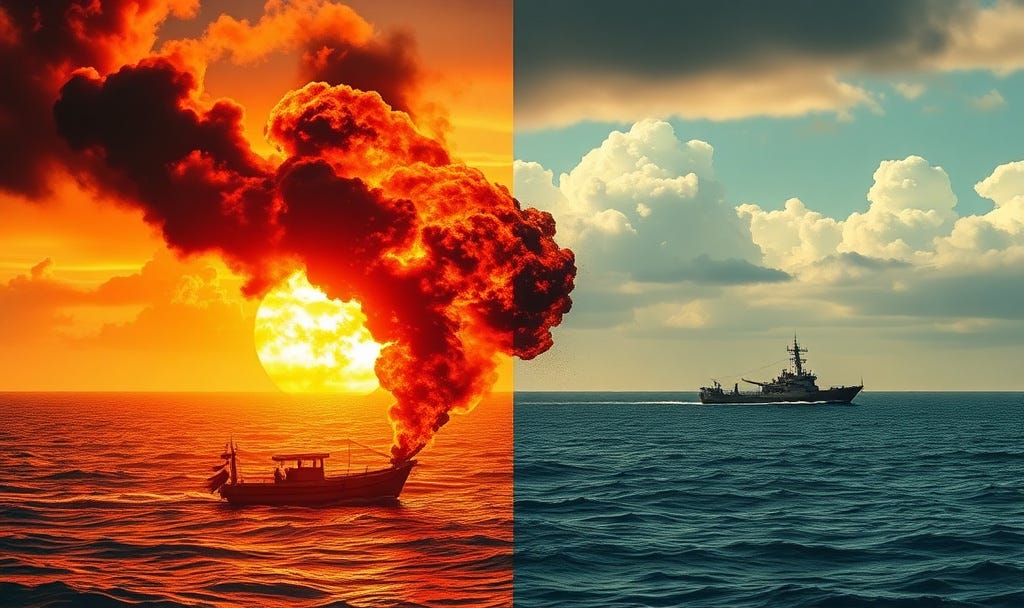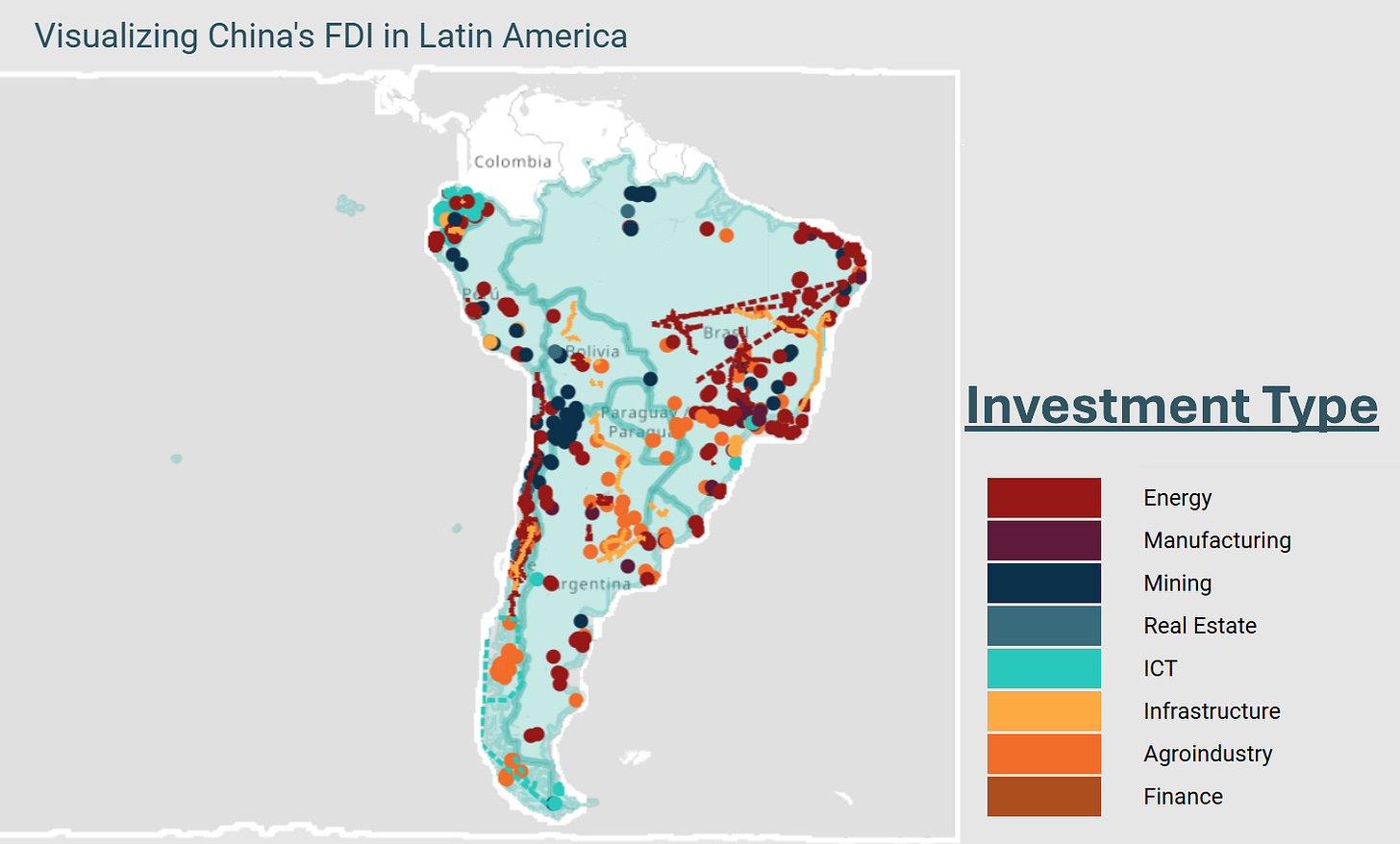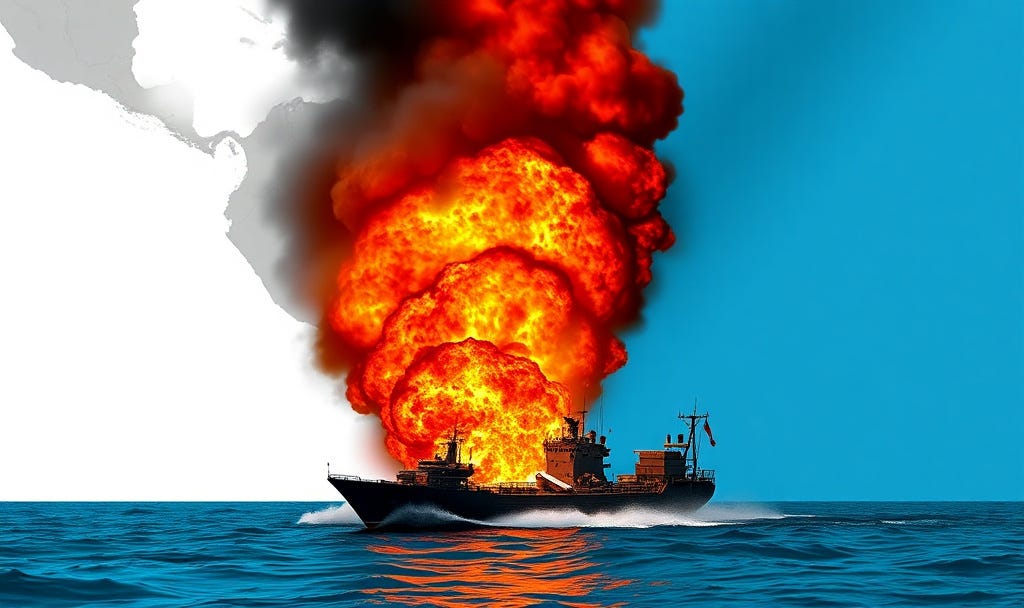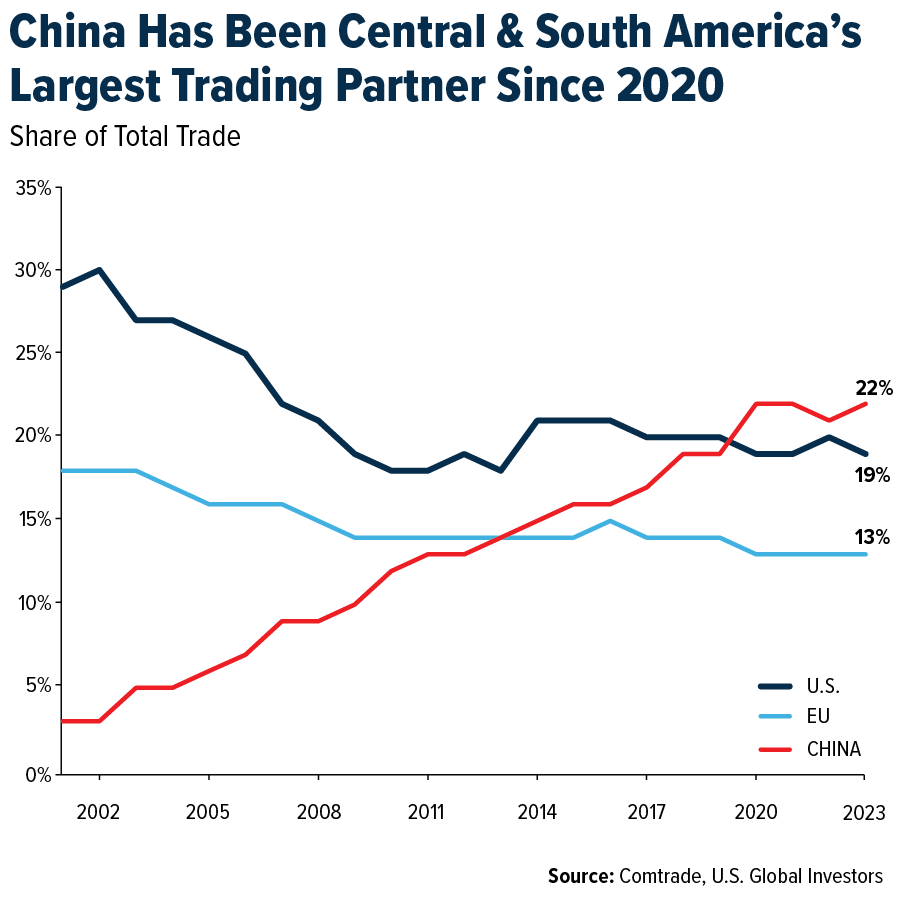Argentina Bailouts and Venezuela Boat Bombings: A Neo-Monroe Response to Chinese Encroachment in the Western Hemisphere
A brief realist geopolitical analysis from the perspective of a Solidarist economist.

Turn on the TV over the past couple of months and you’ll see that the United States military has conducted repeated strikes on vessels off the coast of Venezuela on a nearly weekly basis, officially described as counternarcotics operations. Additionally, the United States has provided Argentina with another bailout totaling $40 billion.
In this article, I argue that these two events are actually connected and are part of a real shift in the United States’ security strategy aimed at curbing China’s strong and growing influence in the Western Hemisphere.
But first…
To be clear, this analysis applies realist international relations theory to recent events in Latin America. I believe this framework best explains President Trump’s approach to foreign policy. The goal of this analysis is to understand these events through the lens of rational hegemonic challenges under conditions of international anarchy - not to endorse or condemn them.
Now, let me first provide some history on the foreign affairs between the People’s Republic of China and the Western Hemisphere.
2005-2024: China’s Gradual Penetration of America’s Backyard
In 2006, China invested nearly $230 million in Argentina. Since then, they have invested approximately $30 billion more - notably in lithium mining, energy, and infrastructure projects (according to data compiled by Urdinez & Myers (2024) although precise figures vary depending on the inclusion of announced versus completed projects).1
And that’s only in Argentina. The below graphic visualizes China’s foreign direct investment (FDI) into key Latin American nations over the past 20 years:

Most notable is the fact that China has focused predominantly on investments targeting energy and mining - many of which are lithium and solar - in the Western Hemisphere while simultaneously competing with the United States (the regional hegemon) specifically in these or adjacent industries.
In addition to FDI from China to those Latin American nations, Venezuela has received nearly half (49%) of all of Chinese development finance institutional (DFI) loans since 2005 - a testament to Beijing’s strategic commitment to the oil-rich socialist nation.2
The trading relationship between China and the region is also very telling over this time period:
Additionally, China has built or supported many strategic structures. The Center for Strategic & International Studies released a report identifying ports - some even in Mexico - with considerable risk / Chinese influence.3
To make matters even more drastic, China, via an arm of their People’s Liberation Army (PLA), has been operating its own space station in Argentina since 2018 that many intelligence officials believe may also serve as a military spy base.4
2025: The Regional Hegemon’s Neo-Monroe Response
This brings us to the year of our Lord 2025.
The beginning of the year saw the peaceful transfer of power from the Biden administration to the Trump administration and - with that - a de facto regime change.
The new regime rejects the foreign policy liberalism of its predecessors and instead operates within a realist view and understanding of international relations. Recognizing this shift is critical to understanding how President Trump’s administration approaches international challenges.
As such, a new international relations paradigm necessitates a new National Defense Strategy - and Secretary of Defense Hegseth tasked the Under Secretary of Defense for Policy, Elbridge Colby, to lead the effort in preparing one.5
In late August, a draft of the National Defense Strategy was provided to Hegseth with a fundamental takeaway: defense should focus on the United States and the Western Hemisphere.6 While this might seem like common sense for most people, this is a stark departure from the previous regime’s focus on containing or dealing with perceived threats in the East (notably Russia and China). This update does not mean that we will not deal with the threats posed by these countries, but rather that we will focus on our geographic sphere of influence: the Western Hemisphere.
China’s strong and growing presence in the Western Hemisphere has been indirectly challenging the regional hegemon where it matters most for years. The difference is that now the hegemon’s regime is realist, and its strategy is to maintain its regional control while denying economic and military space to its identified chief adversary / hegemonic challenger.
Argentina
Argentina’s economic woes should come as no shock to anyone who has studied the economic history of the middle-income nation. Sovereign debt defaults and sudden stops mark the nation’s recent history, and with the election of President Milei, the situation would only get worse as liberal economic policies of “tough medicine” austerity and (later revised) plans to dollarize the economy would essentially be paralleling the events that led to the 2001 default. To add insult to injury, Milei’s crawling peg approach - an attempt to weaken the peso to the dollar - is failing and Argentina’s trade deficit has only been expanding: directly contributing to the depletion of foreign currency reserves.
This is where China enters this year: they have an $18 billion currency swap arrangement to support Argentina’s (quickly depleting) reserves until 2026 - and the United States is clearly not happy with that.7 As a response, the United States Treasury provided President Milei with an initial $20 billion currency swap package earlier this month which was later modified to include an additional $20 billion private investment8 - a total of nearly double what China would have provided - to support Argentina’s peso and external obligations all in an effort to drive Argentina away from China’s economic sphere of influence.
By supporting Argentina’s Milei, the United States is hoping - most likely even conditioning the credit swap and future private sector investment on - Argentina completely cutting its reliance on China.
Venezuela
Venezuela has suffered a severe economic crisis since 2010, beginning under Hugo Chavez and continuing under Nicolas Maduro.
In desperate need of economic support and a natural ideological ally of the Chinese Communist Party, Maduro has been strengthening his relationship with Chairman Xi Jinping over the years, but their relationship appears to have solidified this year.
In early July, China signed over 600 bilateral agreements with Venezuela focusing on energy and infrastructure. Additionally, on August 14th, while at the First Bolivarian Congress on Teacher Education, President Maduro showcased a direct satellite smartphone that Chairman Xi gifted him in which the two heads of state can communicate directly without worry of espionage9. That very same day, President Maduro also met with the Chinese Ambassador to Venezuela, Lan Hu, to further discuss the economic and technological progress that China has a stake in.
In late August of 2025, China (via a private Chinese oil firm) initiated the development of two new oilfields expected to produce 60,000 barrels of crude oil a day by the end of 2026.10
The United States responded.
On September 1st, the United States initiated its campaign of blowing up boats off the coast of Venezuela that it claimed were drug-containing vessels. Later that day, Venezuelan President Nicolas Maduro publicly showcased the same phone that was gifted to him by Chairman Xi on TV and stated that “Americans can’t hack [it].”11
In response to the attack, China dispatched a warship to the Caribbean (although it is technically only for medical use / support) shortly after that would visit a slew of countries in Central America: a clear challenge to Washington.12
Since then, the United States has continued to blow up boats off the coast of Venezuela and has even brought troops to the Caribbean: closer to Maduro.
It appears that the next major escalation - as of the time of this writing - will be a full-scale regime change operation. This would have - in principle - the same effect of the timeless Monroe doctrine: deter (neo-) colonialism and assert the United States as the dominant hegemon in this hemisphere.
Conclusion
That concludes my realist analysis of the geopolitical situation in Latin America. While I have leveraged my economic background to understand the strategic logic, I plan to provide a true solidarist response that integrates Catholic Social Teaching, just war theory, and other ethical considerations. Stay tuned and thank you for reading!

Francisco Urdinez and Margaret Myers (2024) “Regional Repository of Chinese Investments in Latin America”, ICLAC and Inter-American Dialogue.


